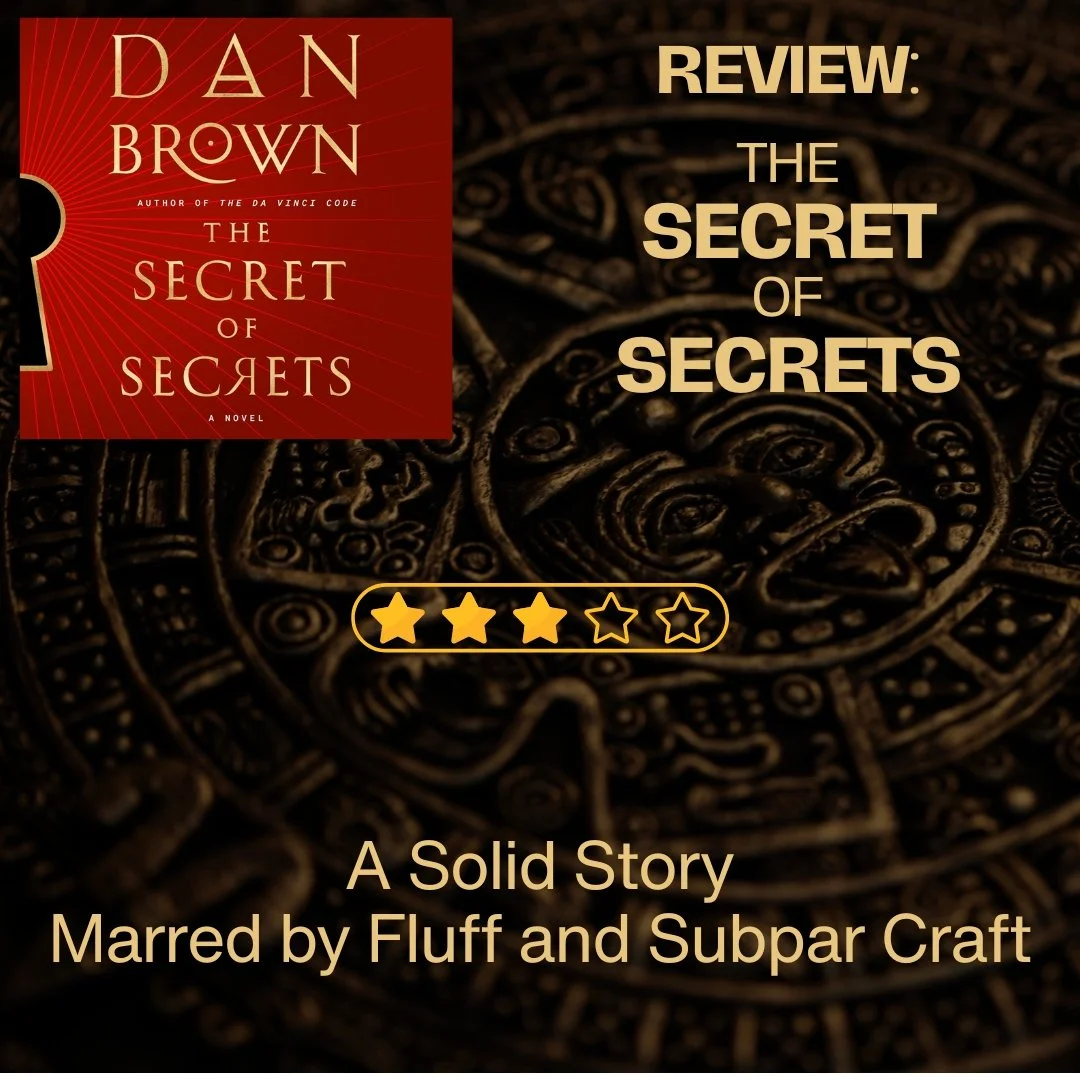After an eight-year hiatus, Robert Langdon has finally returned in The Secret of Secrets. For fans who have been waiting since 2017, the burning question is: Was it worth the wait? The answer, unfortunately, is complicated.
Where Dan Brown continues to shine is in his ability to weaponize research. He is a master at finding a “Big Question” and wrapping it in just enough layers of believable history and symbolism. By moving the action to Prague, a city already shrouded in gothic mystery and occult history, Brown creates a setting that feels like a character in its own right.
The stakes are characteristically sky-high, and his exploration of human consciousness and mysticism provides the intellectual “sugar high” that made him a household name. When Brown is focused on the ideas, the book hums with the same energy that fueled his earlier successes.
However, the story is severely hampered by what I can only describe as subpar writing. While multiple points of view (POV) are standard for a thriller, Brown’s execution here is jarring. Instead of maintaining a consistent perspective within a chapter, he “head-hops” constantly.
There are moments where the narrative jumps between three different minds in a single chapter, completely breaking the suspension of disbelief. Even worse, many of these hops are entirely unnecessary. We are forced into the minds of characters who aren’t even minor players in the story, like a random taxi driver or a Marine officer.
In one particularly egregious instance, a chapter mostly told from Langdon’s POV ends with a few sentences from a minor character who wakes up, feels dread, and then feels fine. It reads like a 5th-grade essay as though Brown didn’t want to do the hard work of “showing” the reader the stakes, so he simply grabbed a nearby extra to “tell” us what was happening instead.
Then there is the Golem. What should have been an eerie, chilling presence becomes repetitive and, frankly, annoying. The “I am the protector” mumbling and aimless wandering feel like padding rather than plot progression.
The danger of setting “sky-high” stakes is that you have to deliver an equally powerful payoff. The Da Vinci Code caught lightning in a bottle, but since then, Brown’s attempts to recreate that magic have felt increasingly diluted. The Secret of Secrets has the scale, but it lacks the punch.
Is it a decent story? Yes. If you are a Robert Langdon loyalist, you will find enough familiar beats to enjoy the ride. But as a standalone thriller, it falls short. It’s a solid concept buried under too much fluff and inconsistent technical execution.
Rating: ★★★☆☆ (3/5)







